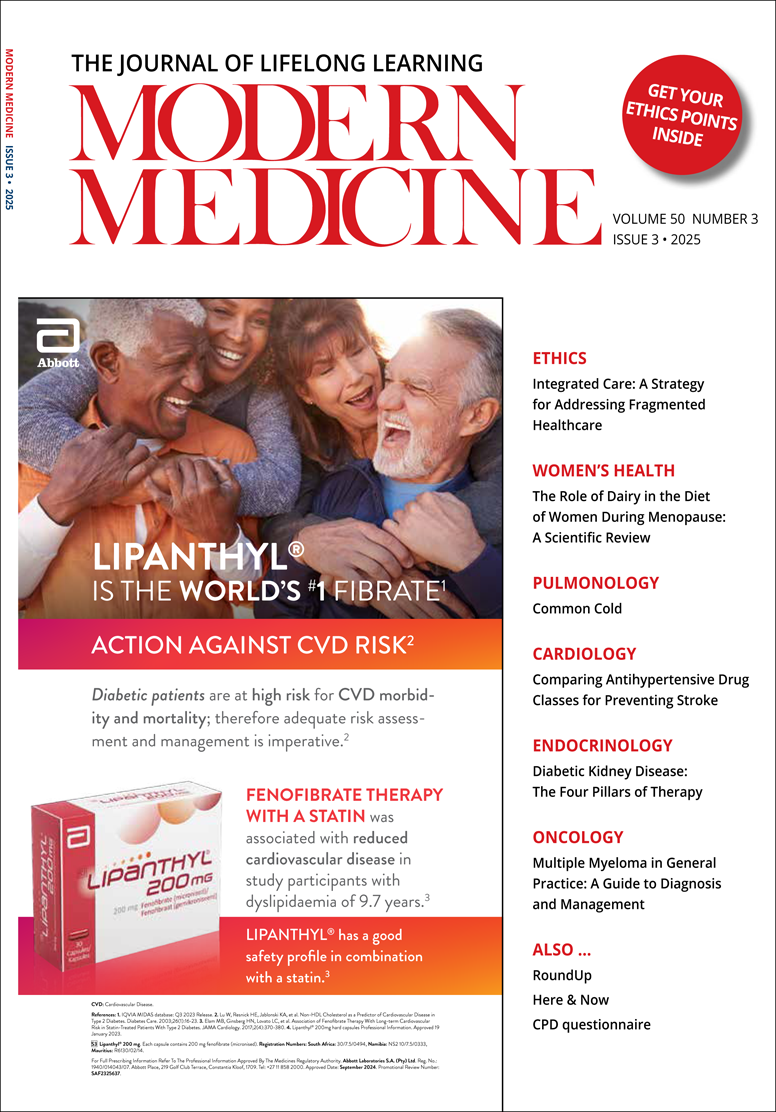Modern Medicine is now available for you to read. We have some great articles featured in this edition:
- Ethics (CPD) – Finding the Balance between Truth and Hope in Critical Illness Discussions
- Pulmonology (CPD)– Promoting Prevention and Targeting Remission of Asthma: A EUFOREA Consensus Statement on Raising the Bar in Asthma Care
- Rheumatology (CPD)– Inflammatory Arthritis and Ocular Complications: An Overview
- Urology (CPD) – Benign Prostatic Enlargement and Lower Urinary Tract Symptoms: An Update on Treatment
- A RoundUp Section & many more….
Also, a reminder that, not only do we have CPD questions available within the magazine itself, we also have an online CPD portal that allows you to score even more points by simply completing your test online.






